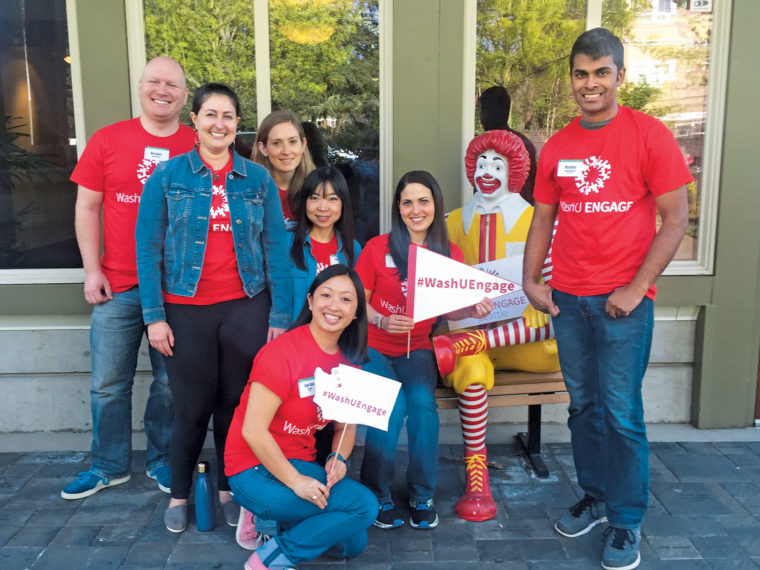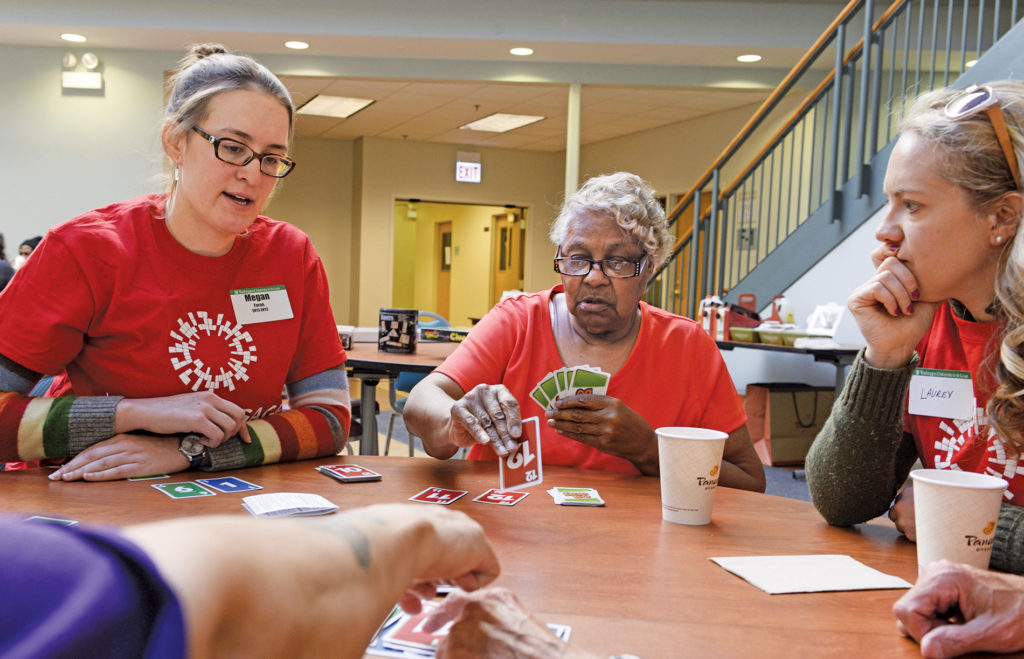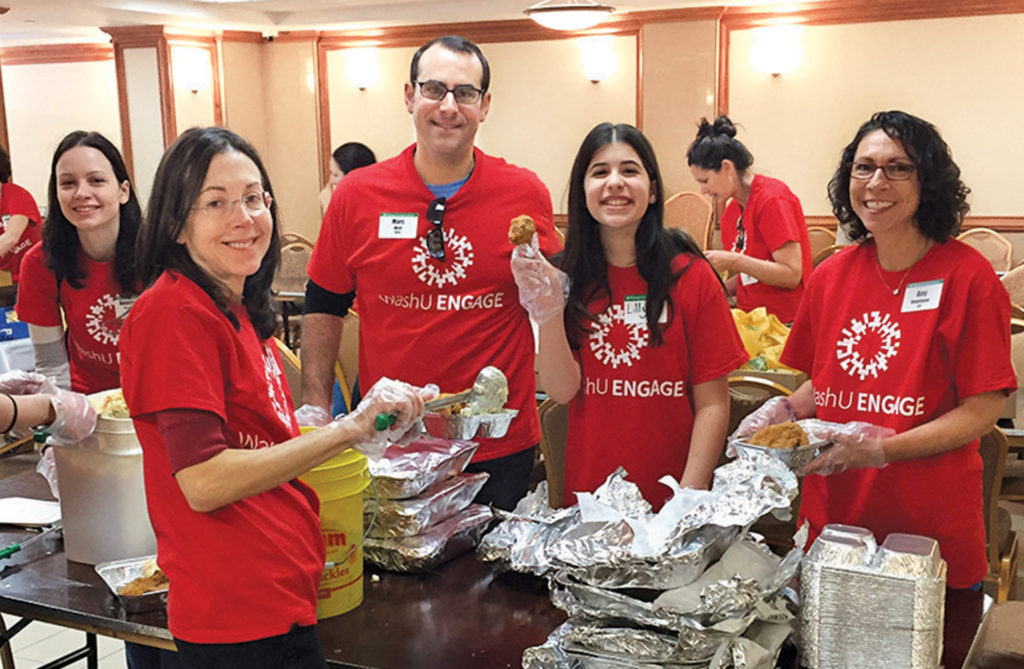Civic engagement and community service are encouraged and prioritized from day one at Washington University. More than half of our freshmen are involved in community service, and 67 percent of undergraduates participate in community service at some point during their four years — 10 percent higher than some of our top comparison schools. And this civic mindset does not end at graduation. Alumni leave campus and go on to serve their own communities — professionally and privately — as leaders, innovators, and compassionate and engaged citizens.
Recognizing and supporting the transition from active students to engaged alumni is critical to the mission of the Washington University Alumni Association, says Susan Cohen, executive director of Alumni Relations. “Our goal is to serve graduates for a lifetime,” she says. “Knowing that community service, social issues and civic engagement are important to alumni of all ages, we want to offer them meaningful ways to make a positive impact in their communities, while also connecting with other alumni and members of the WashU community.”
With this priority in mind, the Alumni Association collaborated with the Gephardt Institute for Civic and Community Engagement in fall 2015 to create and plan WashU Engage — a series of community engagement initiatives led by alumni in cities across the country during April and May 2016. The new program corresponded with the 10th anniversary of the Gephardt Institute, and it aligns perfectly with the institute’s mission of cultivating informed and actively engaged citizens among students, staff, faculty and alumni.
In this inaugural year, WashU Engage consisted of 12 different community projects in 10 cities — Chicago, Cleveland, Detroit, Los Angeles, New York, San Diego, San Francisco, Seattle, St. Louis and Washington, D.C. — with approximately 250 alumni participants. A key feature for these projects was an educational component that contextualized the work. Stephanie Kurtzman, interim executive director of the Gephardt Institute, explains, “It was more than three to four hours of service. We emphasized a proper orientation to the host agency and the issues at hand, as well as some solid reflection and discussion time. This deeper understanding is what uplifts the educational impact of the experience and mirrors what we teach on campus.”
John Crosby, AB ’69, serves on the Gephardt Institute National Council and was instrumental in the initial planning for WashU Engage. He and Kurtzman attended a Princeton University conference on alumni engagement last fall, and Crosby worked tirelessly with alumni volunteers, university staff and alumni focus groups to gauge interest, field suggestions and help finalize the program’s first iteration.
“The alumni I have spoken with are enthusiastic; they want to serve as agents of change and help solve the problems facing their communities.”
— John Crosby, AB ’69
“In order to have a successful alumni engagement program, you have to start with the energy and interest of active alumni leaders, not only on campus and in St. Louis, but across the country,” Crosby says. “The alumni I have spoken with are enthusiastic; they want to serve as agents of change and help solve the problems facing their communities.”
By all accounts, the program was a success, and alumni seem eager for more. Laura Kleinhandler, AB ’90, Gephardt Institute National Council member and site co-leader in New York, says alumni at her project kept asking, “This is so much better than a cocktail party — when can we do this again?” Many alumni have offered ideas for expanding WashU Engage throughout the year, including faculty-led talks and salons, civic engagement book groups and a mentor program for young alumni. Alumni will determine growth possibilities by assessing the needs of their communities. And, as with all efforts spearheaded by the university, the bar has been set very high. As John Crosby says, “We aspire to be the platinum model for alumni engagement throughout the country.”
— Laura Josehart is associate director of development communications.



Comments and respectful dialogue are encouraged, but content will be moderated. Please, no personal attacks, obscenity or profanity, selling of commercial products, or endorsements of political candidates or positions. We reserve the right to remove any inappropriate comments. We also cannot address individual medical concerns or provide medical advice in this forum.